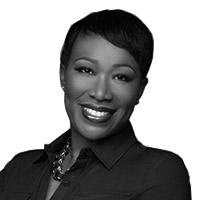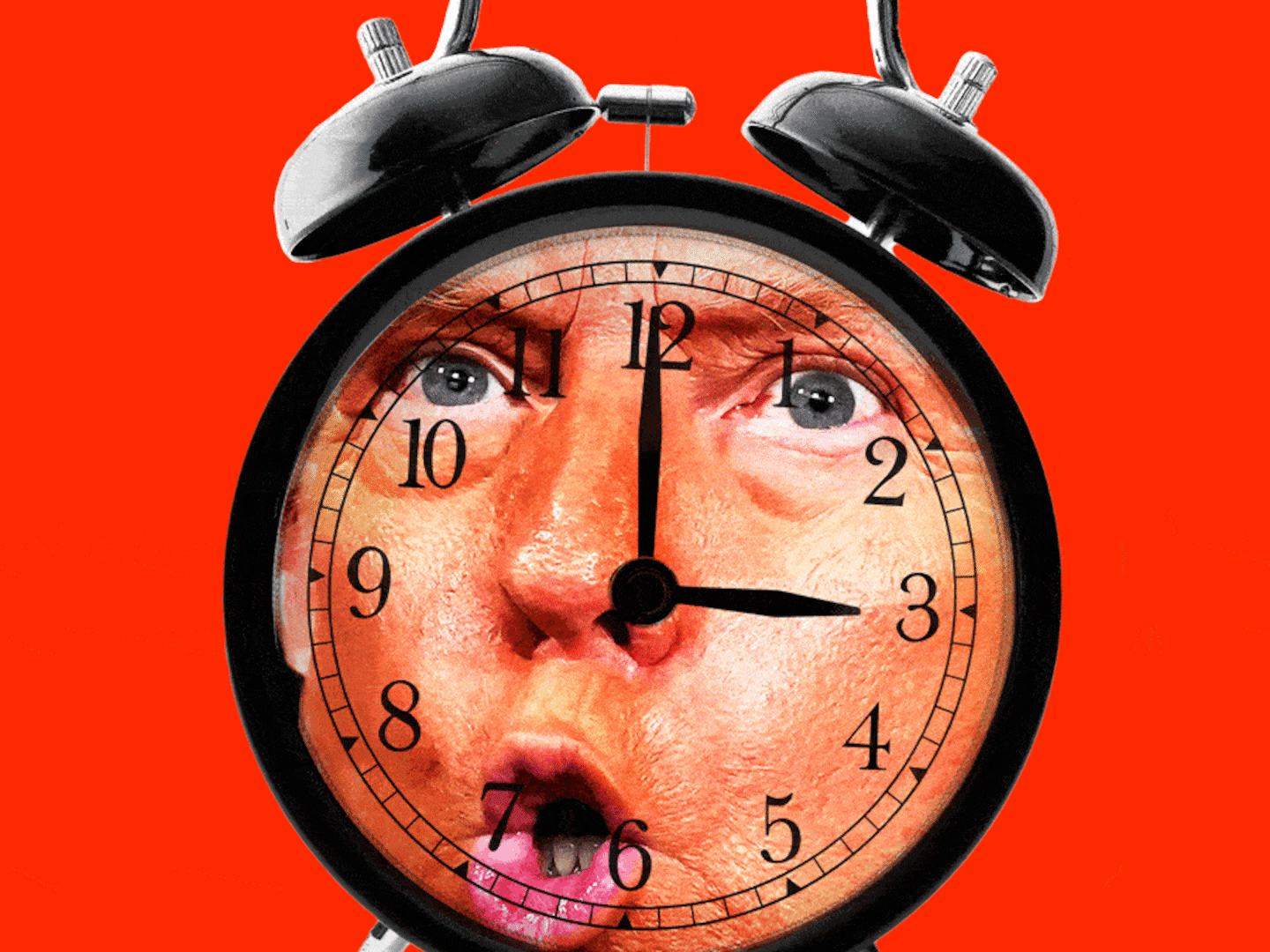If Roy Moore succeeds in becoming the next U.S. senator from Alabama, don’t blame black voters—blame Republicans. That’s according to black politicos in the state, who point out that the fate of the seat vacated by Attorney General Jefferson Sessions is, for the large part, out of their hands.
The narrative that black voters can swing the seat for the Democrats has become a popular media meme, and, some fear, a ready-made excuse if the voters of Alabama send an accused serial child molester to Washington. Black Alabamians, who overwhelmingly support Moore’s opponent Doug Jones and whose political leaders are working toward a victory for him in the close-polling race, say “not so fast.”
“I’ve noticed there have been articles, in The Washington Post, on AL.com etc., about the black vote,” said Judge Steven L. Reed, a probate judge and the chief election official of Montgomery County, and the son of the longtime leader of the Alabama Democratic Conference, Joe Reed. “I don’t really think this election is a referendum on the black vote. The question has to be asked, what about the good white people?… The question is will the good white people do the right thing and vote for the person and not the party.”
Reed lamented the fact that when it comes to elections garnering national attention, “it seems as though the black vote gets the blame if things don’t go a certain way but don’t get much of the credit when things work out the way the Democrats want it to.”
Eric Guster, a politically active Alabama attorney, agreed. “It’s almost as if the national media wants to put this at the feet of the black community if Moore wins,” he said, adding that if the election goes the Republican’s way, the blame will lie in two places: with white Alabama voters, and with the Jones campaign.
As many Americans have come to know, Jones prosecuted two of the Ku Klux Klan members responsible for the Sept. 15, 1963 bombing of the 16th Street Baptist Church in Birmingham, killing four pre-teen girls and injuring 22 others as a salvo against integration. That fact has rightly made Jones a bona fide heroic figure. But black Alabamians who talked with The Daily Beast cautioned that that message has become the be all and end all of the Jones campaign.
“His message has been simply, ‘I prosecuted the men for the “four little girls” bombing’ and that’s it,” Guster said. “There’s no message about what he’s going to do for the black community, what else he has done besides the prosecution to enhance the black community, and what he has done to earn our vote.”
A text message targeting black voters and obtained by The Daily Beast reads: “Hi ___, this is Cara with Doug Jones for Senate. As U.S. Attorney he took on the Klan and convicted two Klansmen for the murder of four little girls. I’m supporting Doug because he’ll fight for us - can he count on your vote on Dec. 12th?”
Guster said the Klan prosecution has also been the singular message in Jones’ Facebook ads targeting black audiences, and he said that in some ways, the campaign has tried to have it both ways, even attempting to appeal to white Alabamians with a Facebook ad in which Jones praises the tactical skill of the Confederate army to explain that he would fight for bipartisanship in congress.
As for the usual mechanics of grassroots campaigning, Guster said the Jones campaign has had too little visibility.
“It’s one of those situations where he feels that he’s just going to get the black vote,” Guster said. “It’s very similar to what Hillary did, where she did not reach the black community with a message of what she would do [for African Americans] if she wins. The message was: ‘Trump is bad, vote for me.’ Jones’ message is ‘Moore is bad, vote for me.’ There’s no concise message to earn our votes.”
“The black vote only makes up 25 percent of the electorate,” Reed said, noting that in addition to the allegations of preying on teenage girls when he was a prosecutor in his thirties, Moore, 70, opposed removing segregationist language from the state constitution, something neither man mentioned the Jones campaign has played up with black voters. “This is really about what the GOP voters of Alabama are going to do. This is another [George] Wallace-like moment that will determine how people view Alabama. Do they view Alabama in a segregation-era context or in a modern context.”
One influential Republican in Alabama who spoke on background to The Daily Beast and who calls himself a reluctant Moore supporter insists that the state’s segregationist past has nothing to do with its present-day politics, adding that Moore isn’t even particularly popular with Republicans in the state (Moore won his last statewide election by just three points). The Alabama Republican said Moore’s continued viability in the Senate race is down to his support for conservative policies on immigration and abortion, and the likelihood that he would vote for conservative federal judges as a U.S. senator.
“Moore has got a real base of 30 percent of people who would vote for him no matter what,” the Republican said. “He has never been able to win a regular election—he always wins in off years and always in low turnout elections. The normal people I talk to will vote for Moore just because you don’t want a Doug Jones voting on judges and immigration.” The Republican predicts a Moore victory but said he wouldn’t be surprised if Jones won,“because people are just disgusted,” though he predicts that whoever wins won’t last long in office, anyway. Moore, he said, would likely lose in a primary during the higher turnout 2020 race. “And he’ll do something stupid.”
Even Donald Trump’s endorsement of Moore—he will hold a rally next week 20 miles from the Alabama border in Pensacola, Florida, and has said he believes Moore’s denial of child molestation allegations—is beside the point, the longtime Republican said, since GOP voters in the state already line up with Trump and Moore on those core issues. Given that, Dec. 12 will be a referendum on what Republicans are willing to tolerate in a Senate candidate, and in terms of those representing their party.
Trump won Alabama 62.1 percent to 34.4 percent for Hillary Clinton, his sixth-best performing state, after Wyoming, West Virginia, Oklahoma, Kentucky, and North Dakota.
Barack Obama won just 38.4 percent in the state in 2012, down from 38.8 percent in 2008. And Alabama was Obama’s worst performing state when it came to white voters, giving him just 10 percent of their votes versus 43 percent of white voters nationwide (he got 11 percent of the white vote in Mississippi; 14 percent in Louisiana; 23 percent in Georgia; and and 35 percent and 42 percent in his successful efforts in North Carolina and Florida, respectively, according to exit polls). Ironically, at least one poll finds that Obama is now more popular in the state than Donald Trump.
The Republican political observer had a blunt assessment of the two parties, saying the Democratic Party has, become “the black party. You can’t get elected as a white Democrat anymore,” while once solidly Democratic districts have become almost entirely Republican. Jones’ run will test that, but it’s clear that unless a plurality of white Alabamians cross over and vote with black Democrats, Roy Moore will be sworn in as a United States senator.
The Alabama state legislature switched from majority Republican to majority Democratic in 2010 but the state shifted from supporting Democratic to Republican presidential candidates after the passage of the Civil Rights Act of 1964 under LBJ, with the white vote splitting between Richard Nixon and then-Gov. George Wallace in 1968. Black voters have had diminishing power in the state ever since. At present, due to gerrymandering, there is just one African-American member of congress from Alabama: Terri Sewell, who represents much of the “Black Belt” in the state, comprising majority African-American sections of Birmingham, Tuscaloosa, and the state Capitol, Montgomery.
Still, for black Alabamans involved in politics, the Senate contest does represent a chance to register and energize black voters who have seen serial disappointments at the polls despite achieving record turnout for Obama in 2008 and 2012, and who have watched Trump try to dismantle Obama’s achievements one by one. And Reed, who was a Clinton delegate in 2016, said the party would be wise to take advantage of it.
“I think the attitude here is one of hopeful optimism that with each new election there comes an opportunity to put our agenda forward and show the electorate that we have better ideas than the Republican Party for the average Alabaman,” Reed said. “There’s also a pragmatism that’s attached to that, [but] we’re still going to work to get out the vote” on Dec. 12.
“That being said, we’ve had a lot of issues here at the state government level that give us optimism that if we can stay together and bring our agenda forward that we can elect some good people from the governor on down,” Reed adds. “As a county official I’d be remiss if I didn’t focus and talk about the importance of local and state government, and not just being fixated on the presidential and national elections.”
Mostly, Reed, who in January called for Moore to resign over his refusal to follow a federal court order to issue marriage licenses to same sex couples when he was chief justice of the state Supreme Court, said the national media needs to be realistic in its expectations.
The special election is “coming at an odd time of year,” he said. “It’s not attached to a slate of other elections like school board or sheriff that get people talking in their communities. I think the national attention has helped, and as you come closer to the election and the advertising increases that helps, but is voter interest and enthusiasm where I would like it to be? No.”
But, he added: “We have over a week to get it there.”






